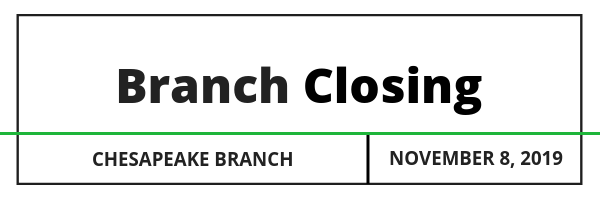As part of our Financial Awareness Month celebration and ongoing commitment to invest in our communities’ futures, the Signal Financial Charitable Foundation introduced its Scholarship Program this April, offering a $1,000 scholarship to help support a student’s academic journey. Applicants were asked to write a brief essay or record a video discussing a financial lesson they’ve learned and how it has helped them prepare to graduate. Two applications stood out amongst a number of strong submissions, and the Foundation decided to award not one, but two individuals with $1,000 scholarships. Thank you to all those who submitted an essay or video. Below is the winning essay from one of our winners, Eleyna, who attends Towson University.
 Financial Lessons That Have Shaped My Path to Graduation
Financial Lessons That Have Shaped My Path to Graduation
My college preparation was non-existent, to say the least. My parents never had enough savings put away for my tertiary education, so loans and scholarships were my only options. Because of that, I’ve learned a valuable lesson about finances—one that has not only helped me survive college but is also helping me prepare to graduate and transition into adulthood.
The most important financial lesson I’ve learned is the value of saving and budgeting. These two concepts might sound basic, but when you don’t grow up with them modeled for you, they’re not always easy to understand or implement. I had to teach myself, through trial and error, how to manage money. I realized that if I didn’t take control of my spending, I would always feel like I was struggling or just getting by. I didn’t want that to be my reality.
Creating a budget became the first step in understanding my financial habits. I started tracking how much I spent on necessities like food, transportation, and school supplies versus wants like takeout or random shopping trips. What shocked me was how quickly small purchases added up. I started seeing patterns in my spending and learned to be more intentional with my money. Every dollar needed a purpose. I began using tools like budgeting apps and spreadsheets to keep myself accountable, and I even set savings goals for emergencies or things I knew I’d need later on—like textbooks or professional clothes for job interviews.
What I’ve come to understand is that preparation is key. Preparing for the next chapter in life—whether it’s graduating college, entering the workforce, or moving out on your own—takes real planning and discipline. I didn’t truly grasp the importance of financial preparation until I realized my parents just didn’t have it. It wasn’t because they didn’t care—it was because they were never taught either. Growing up in a household where money was always tight taught me that wishing things were better won’t change anything. You have to act. You have to learn. And you have to plan.
The summer before college, I made a decision. I committed to applying for as many scholarships as I could, and I got a summer job to start saving. I didn’t have the luxury of showing up to campus with financial support from home. I needed to build that support for myself. That summer taught me resilience and responsibility. Every application I submitted and every dollar I saved made me feel more in control of my future.
Since then, I’ve worked part-time during the school year while also maintaining my academic responsibilities. It hasn’t been easy, but it’s been worth it. I’ve learned how to juggle multiple responsibilities, make sacrifices, and prioritize what matters. Sometimes that meant skipping outings with friends or turning down impulse buys so I could stay on track. Other times, it meant reminding myself of the bigger picture—graduation and the life I’m working toward.
Saving money and budgeting have not only helped me get through college but have also positioned me to be better prepared once I graduate. I now think long-term. I’ve started to plan for post-graduate expenses like moving costs, job-search costs, and even student loan repayment. Because I’ve been managing my money with intention, I feel more confident about what’s ahead. I know how to stretch a dollar, how to create a financial cushion, and, most importantly, how to make smart decisions that align with my goals.
Another financial lesson I’ve learned is the power of mindset. At first, I used to feel embarrassed that I didn’t have the same financial support as some of my peers. I felt like I was constantly playing catch-up. But I’ve learned that being financially aware and disciplined is nothing to be ashamed of—it’s a strength. It shows maturity and foresight. And honestly, going through this journey has helped me develop a deeper appreciation for what I have and for the value of hard work.
In preparing to graduate, I now feel more capable than ever of handling the responsibilities that come with adulthood. I’ve built financial habits that will stick with me long after college—habits that many people don’t develop until much later in life. That’s something I’m proud of.
If I could share one piece of advice with someone who feels like they’re behind financially, I would say this: it’s never too late to start learning. Start small, ask questions, make mistakes, and keep moving forward. That’s what I did. I didn’t come into college with a plan, but I’m leaving with a purpose—and my financial lessons have played a big part in that.
In the end, learning to save, budget, and prepare has not only helped me afford college—it’s helped me grow. These lessons have given me the tools to create a stable foundation for my future, and that, to me, is priceless.





